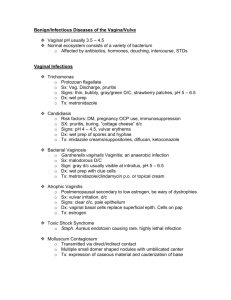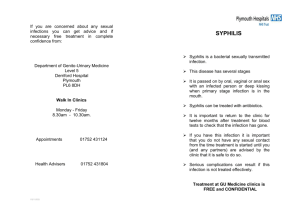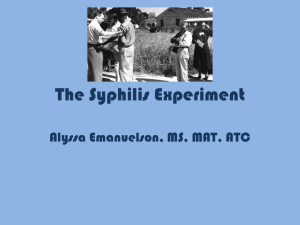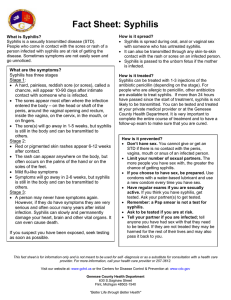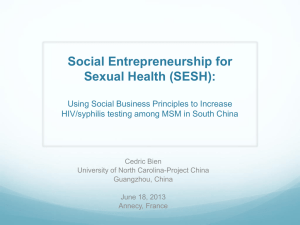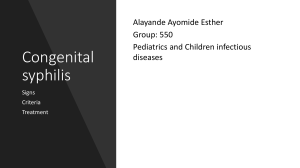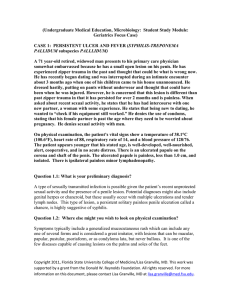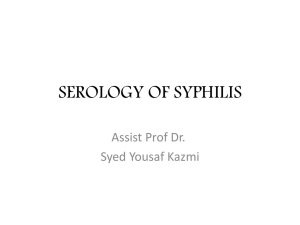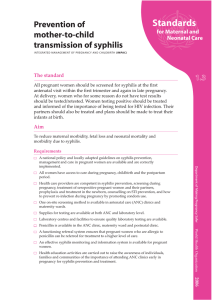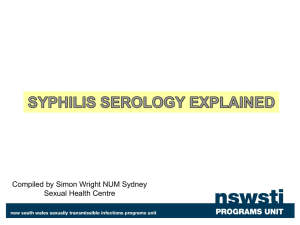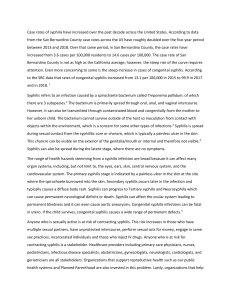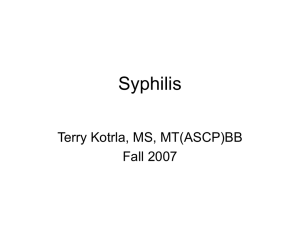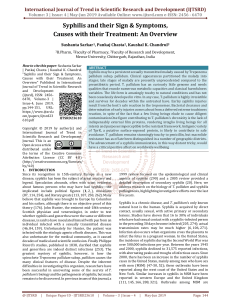Health Advisory: Syphilis in Women
advertisement
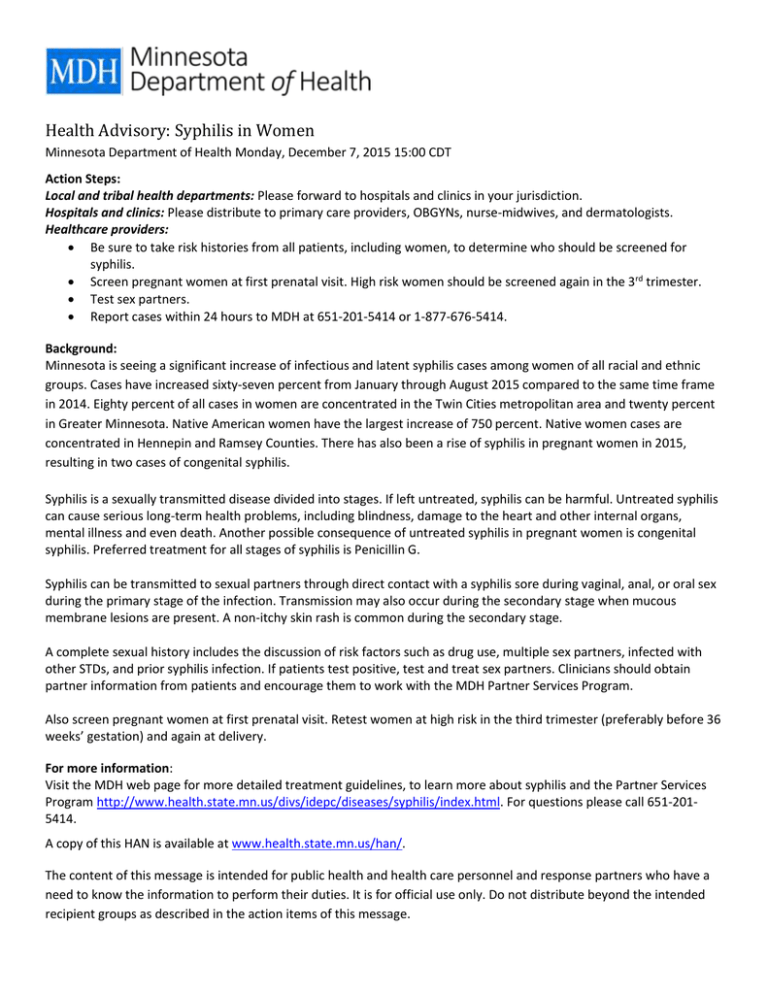
Health Advisory: Syphilis in Women Minnesota Department of Health Monday, December 7, 2015 15:00 CDT Action Steps: Local and tribal health departments: Please forward to hospitals and clinics in your jurisdiction. Hospitals and clinics: Please distribute to primary care providers, OBGYNs, nurse-midwives, and dermatologists. Healthcare providers: Be sure to take risk histories from all patients, including women, to determine who should be screened for syphilis. Screen pregnant women at first prenatal visit. High risk women should be screened again in the 3rd trimester. Test sex partners. Report cases within 24 hours to MDH at 651-201-5414 or 1-877-676-5414. Background: Minnesota is seeing a significant increase of infectious and latent syphilis cases among women of all racial and ethnic groups. Cases have increased sixty-seven percent from January through August 2015 compared to the same time frame in 2014. Eighty percent of all cases in women are concentrated in the Twin Cities metropolitan area and twenty percent in Greater Minnesota. Native American women have the largest increase of 750 percent. Native women cases are concentrated in Hennepin and Ramsey Counties. There has also been a rise of syphilis in pregnant women in 2015, resulting in two cases of congenital syphilis. Syphilis is a sexually transmitted disease divided into stages. If left untreated, syphilis can be harmful. Untreated syphilis can cause serious long-term health problems, including blindness, damage to the heart and other internal organs, mental illness and even death. Another possible consequence of untreated syphilis in pregnant women is congenital syphilis. Preferred treatment for all stages of syphilis is Penicillin G. Syphilis can be transmitted to sexual partners through direct contact with a syphilis sore during vaginal, anal, or oral sex during the primary stage of the infection. Transmission may also occur during the secondary stage when mucous membrane lesions are present. A non-itchy skin rash is common during the secondary stage. A complete sexual history includes the discussion of risk factors such as drug use, multiple sex partners, infected with other STDs, and prior syphilis infection. If patients test positive, test and treat sex partners. Clinicians should obtain partner information from patients and encourage them to work with the MDH Partner Services Program. Also screen pregnant women at first prenatal visit. Retest women at high risk in the third trimester (preferably before 36 weeks’ gestation) and again at delivery. For more information: Visit the MDH web page for more detailed treatment guidelines, to learn more about syphilis and the Partner Services Program http://www.health.state.mn.us/divs/idepc/diseases/syphilis/index.html. For questions please call 651-2015414. A copy of this HAN is available at www.health.state.mn.us/han/. The content of this message is intended for public health and health care personnel and response partners who have a need to know the information to perform their duties. It is for official use only. Do not distribute beyond the intended recipient groups as described in the action items of this message.
